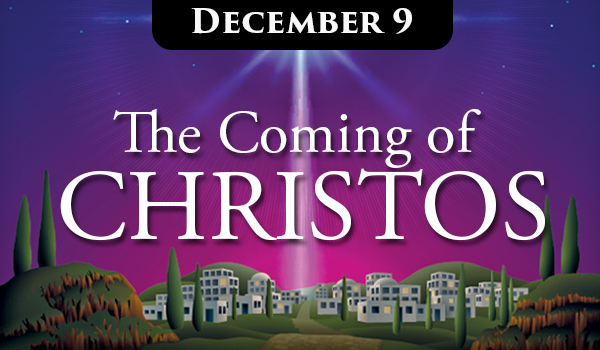Read: Luke 1:46–56
“My soul glorifies the Lord and my spirit rejoices in God my Savior.”
Luke 1:46–47
Elizabeth has just declared great things for Mary and her baby. In fact, she cries out in a loud voice, shouting this proclamation. Mary responds with an anointed praise of her own. It is often referred to as the Magnificat because this is the first word of her song (“My soul magnifies,” or “glorifies”) in the first Latin translation of the Bible from Hebrew and Greek, called the Vulgate. This translation was done by Jerome in the late fourth century AD.
What we see in these words, also known as Mary’s Song, is her knowledge of the Old Testament. Many themes are represented. Let me show you in an obvious way.
As we’ve mentioned, there are quite a few similarities and repeating stories between the Old and New Testaments. This is true when we look at Mary’s Song. It is fascinating to realize and study the similarity between Mary’s words and those of Hannah in 1 Samuel 2:1–10. You remember Hannah from the other day—another barren mother blessed by God with the miracle of conception. I encourage you to also read her song of praise today.
In both passages, the women praise and thank God. He is holy and He is our salvation. They both speak of social justice, helping the poor and hungry, and exalting the lowly while bringing down the rich and the unjust rulers.
Without getting into a long explanation, and without trying to offend any readers, let me now briefly address a somewhat sensitive subject. Elizabeth’s declaration to Mary, “Blessed are you among women,” and Mary’s subsequent choice of words is why so many people revere her, perhaps too much so.
The phrase “all generations will call me blessed” has led readers for centuries to conclude that she is to be adored and even worshiped. The Greek translation is a bit tricky, but a better explanation of the actual meaning is that people will recognize that Mary was indwelt by God and therefore will be celebrated for generations to come. The word used here, “blessed,” is the same Greek word, makarios, used by Jesus repeatedly in the Beatitudes (“Blessed are the poor in spirit,” etc.).
This clarification is important to drive home a critical truth about the Lord we live for and worship. There is but one God (John 17:3). He exists as the Trinity: Father, Son, and Holy Spirit. This is hard for us to wrap our finite minds around, but it is truth nonetheless. Angels are not to be worshiped, nor is any human being.
So, as we celebrate this Christmas season, let’s focus our praise, adoration, and worship toward the Lord. Let’s celebrate that God the Father sent His Son through Mary. Let’s be grateful that the same Holy Spirit who filled Elizabeth and baby John in her womb also fills us as believers. Let us praise Him as Hannah did, that “There is no one holy like the Lord; there is no one besides you; there is no Rock like our God” (1 Samuel 2:2).
